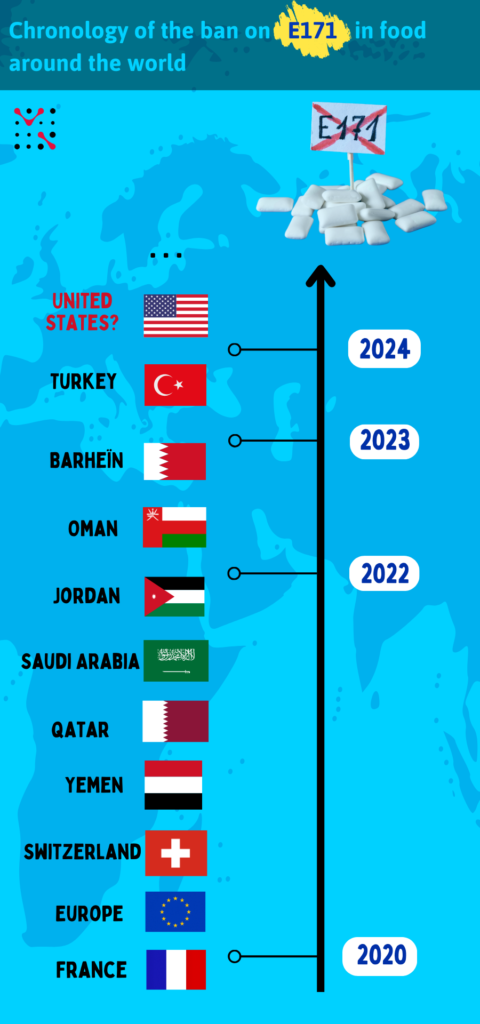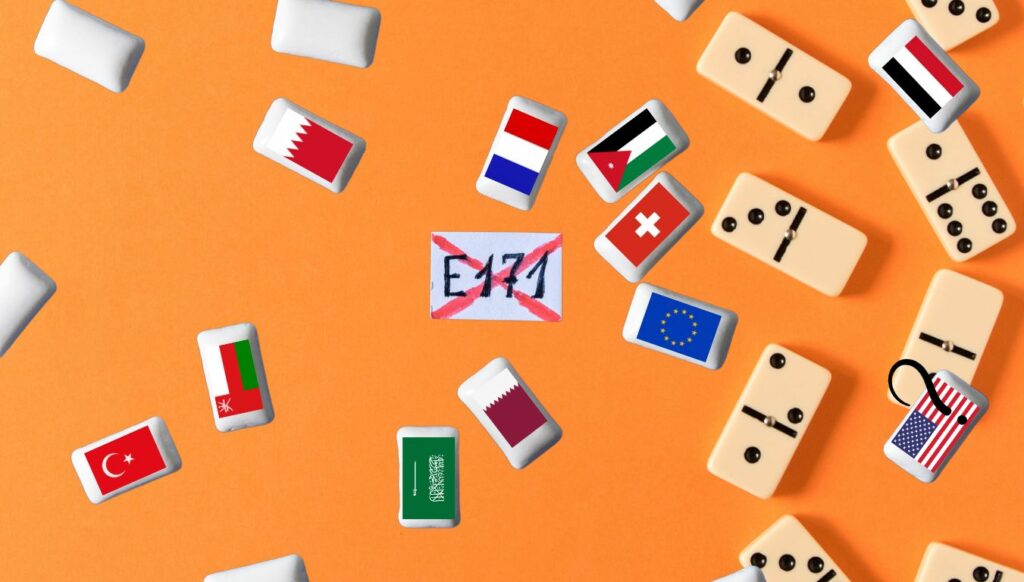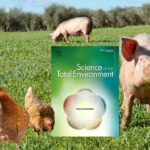
Along with Turkey, at least 36 countries have already said no to E171 in food
Since the 2020 ban on titanium dioxide (E171) in food in France, many countries have followed suit to protect the health of their citizens. Turkey is the latest.
In 2020, France took the initiative of suspending the use of the additive E171 in food products, in response to growing concerns about its possible harmful effects on health. This decision was followed by the European Union’ s official ban on the use of E171 starting from August 2022, setting off a worldwide chain reaction.
In September 2022, a similar measure came into effect in Switzerland and Yemen, both opting to ban E171. Other Middle Eastern countries followed suit, including Qatar and Saudi Arabia in October 2022, followed by Jordan in December 2022.
In February 2023, the Gulf Standardization Organization (GSO) removed E171 from its list of authorized additives. In July 2023, the ban on E171 came into force in the State of Oman, followed by Bahrain in October 2023.
Meanwhile, in the USA, associations have filed a formal request to the Food & Drug Administration (FDA) in 2023, calling for a ban on E171. To be continued…
Turkey is the latest country to join this global movement by banning E171 in food products from April 2024, in accordance with the updated Turkish Food Codex Food Additives Regulation published on October 13, 2023.


Other news on the topic
Upcoming Nano Agenda
- Introductory seminar on the principles of Life Cycle Assessment (LCA) and its specificities when applied to nanomaterials (metal nanoparticles, oxides, etc.), from their production to their end-of-life.
- Organizer: NaMasTE research group (Manufactured Nanomaterials, Toxicology, Ecotoxicology and Risks: Towards Controlled Development)
- Speaker: Gaetana (Tania) Quaranta, Senior Lecturer, University of Strasbourg – IPHC
- Website: https://gdr-namaste.cnrs.fr/

- Webconference for analysis laboratories, plant fertilizer manufacturers and distributors, public authorities…
- Moderated by David Krupka, nanotechnologies development manager at AFNOR Normalisation and Emilie Langlois-Bertrand, nantechnologies standardization project manager.
- In partnership with Armand Masion (CEREGE) and Patrice Charpentier (ANSES).
- This exchange will also be an opportunity to explore the creation of a national platform to identify standardization needs.
- Website: https://www.afnor.org/evenements/qualite/nanotechnologies-agriculture-cadre-pratique-responsable

- International conference on metallic nano-objects for experts working in the interdisciplinary field of metallic nanoparticles, with a particular emphasis on nanoparticle synthesis and characterization, plasmonics, optics and photonics, catalysis, biomedicine, electronics, and nanoparticle recycling
- Organizers / Partners: CNRS, Bordeaux University, Bordeaux INP, ICMCB, CRPP, CBMN, ISM
- Website: https://mno2026.sciencesconf.org






